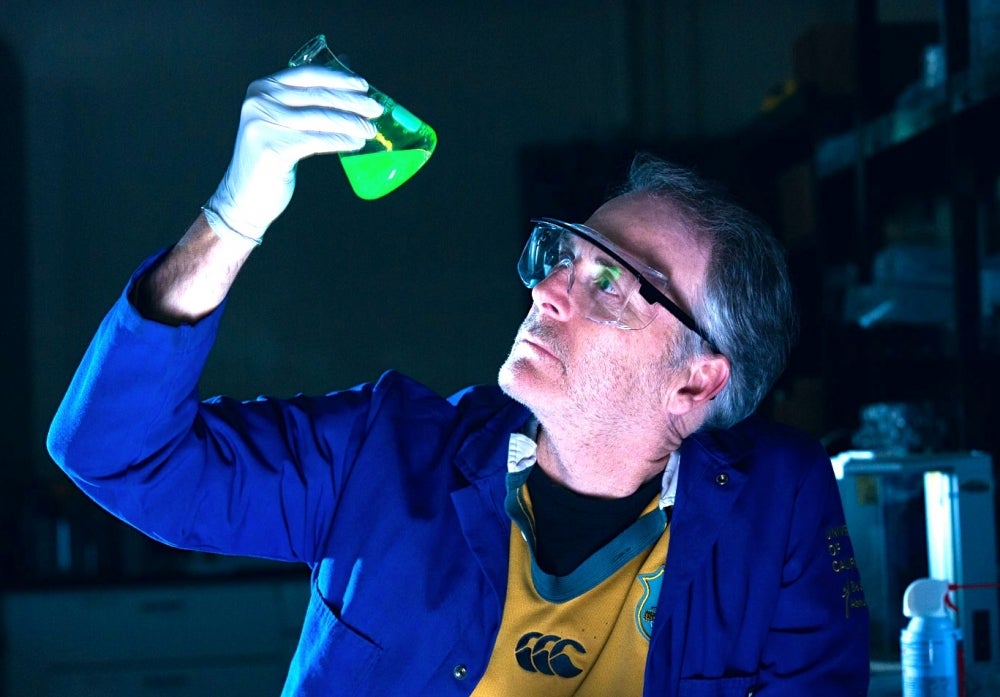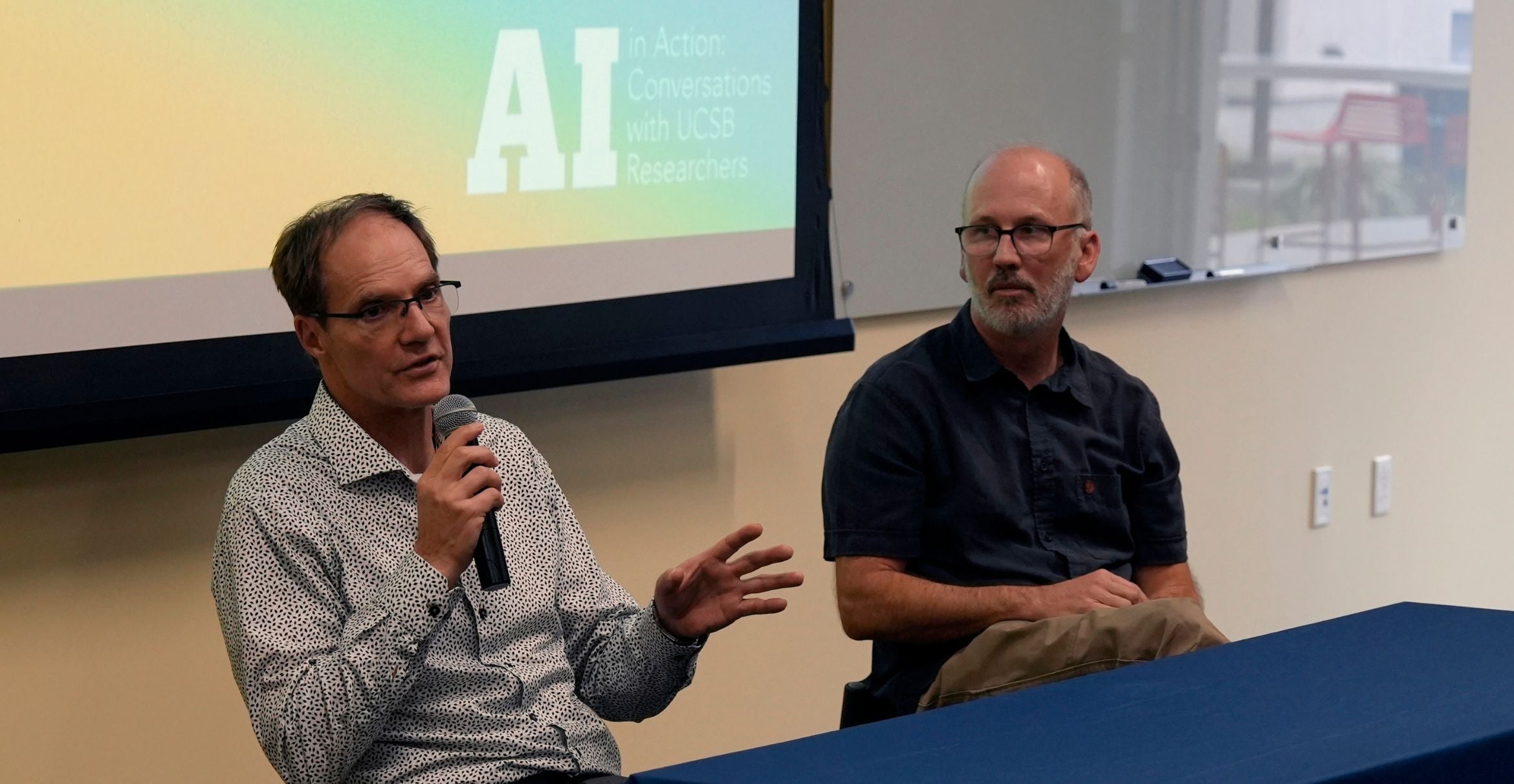
Polymer Pioneer
Taking a transformative approach to functional materials, a UC Santa Barbara polymer chemist has created innovative results that feature new properties and new applications.
Now, his methods have earned him the Charles G. Overberger International Prize for Excellence in Polymer Research from the American Chemical Society. The prize is awarded every two years.
“I am delighted to congratulate Professor Craig Hawker for receiving the prestigious Overberger Prize from the American Chemical Society,” said Rod Alferness, dean of the College of Engineering. “Craig is a brilliant and creative scientist who exemplifies the collaborative spirit that we value so highly at UC Santa Barbara. His contributions have significantly advanced polymer science, and he has served as a powerful mentor to a great many grateful alumni.”
Charles Overberger was a pioneer in the field of macromolecular science, laying the foundation for modern polymer chemistry through groundbreaking work at the University of Michigan.
“It is a thrill and honor to receive the Overberger International Prize,” said Hawker, a professor in the materials and chemistry and biochemistry departments. “He was an early giant in organic polymers who helped establish the field as a major subdiscipline in chemistry and materials. To even be mentioned in the same breath as Professor Overberger and the prior winners of this award is very special.”
The award cites Hawker as “the world’s foremost exponent of combining organic chemistry and polymer synthesis to create innovative materials having new properties and applications” and as someone who has “inspired a generation of scientists to develop transformative synthetic approaches to functional materials by breaking down the barrier between organic chemistry and material synthesis.”
Hawker’s innovative applications of fundamental organic chemistry concepts opened the field of macromolecular engineering, allowing researchers unprecedented control over polymer composition, structure and topology. Later, he took on one of the foundational challenges of polymers: developing a living free-radical polymerization process, which spurred previously unexplored areas of polymer chemistry. Hawker’s group was instrumental in discovering that free-radical initiators could be attached to surfaces, which led to the controlled synthesis of polymer “brushes,” now a major theme in materials science.
He has also made large contributions to the rapidly expanding field of “click” chemistry, which is based on mimicking the synthetic efficiency and orthogonality found in enzymes and other natural systems. The impact of this concept is seen in Hawker’s work on preparing multifunctional and multivalent nanoparticles for the diagnosis and treatment of cardiovascular disease. Ian Manners, a professor of chemistry at the University of Bristol in England, described that success as a “rare achievement of translating a highly functional polymer molecule from the laboratory to the clinic.”
In addition to advancing fundamental polymer and materials science, Hawker’s groundbreaking studies have contributed to technological and practical applications, forming the basis for more than 50 valuable patents and commercial products. That commercial success is matched by an outstanding citation record that firmly establishes the worldwide importance of the synthetic strategies developed in Hawker’s UCSB lab.
Collaboration, Hawker said, is at the root of his success. “That’s what has enabled an award like this — being able to work not only with great students who are attracted to this combination of fundamental and applied research, but also with other UCSB research groups that complement and significantly expand our core competency in polymer synthesis,” he explained. “One of the things I’m proudest of is that if you ask people beyond our campus what they think of when they think of UCSB, it’s collaborative research.”
Among his collaborators have been many students, whom Hawker described as “our ultimate product.”
“The College of Engineering puts tremendous effort into creating an environment that allows them to shine and then go out and do great work,” Hawker said. For them to look back and say, ‘I want to thank you for allowing me to shine’ — it’s better than anything.”
Hawker is a fellow of the Royal Society, Director of the Dow Materials Institute and the California NanoSystems Institute and a member of the National Academy of Inventors.



